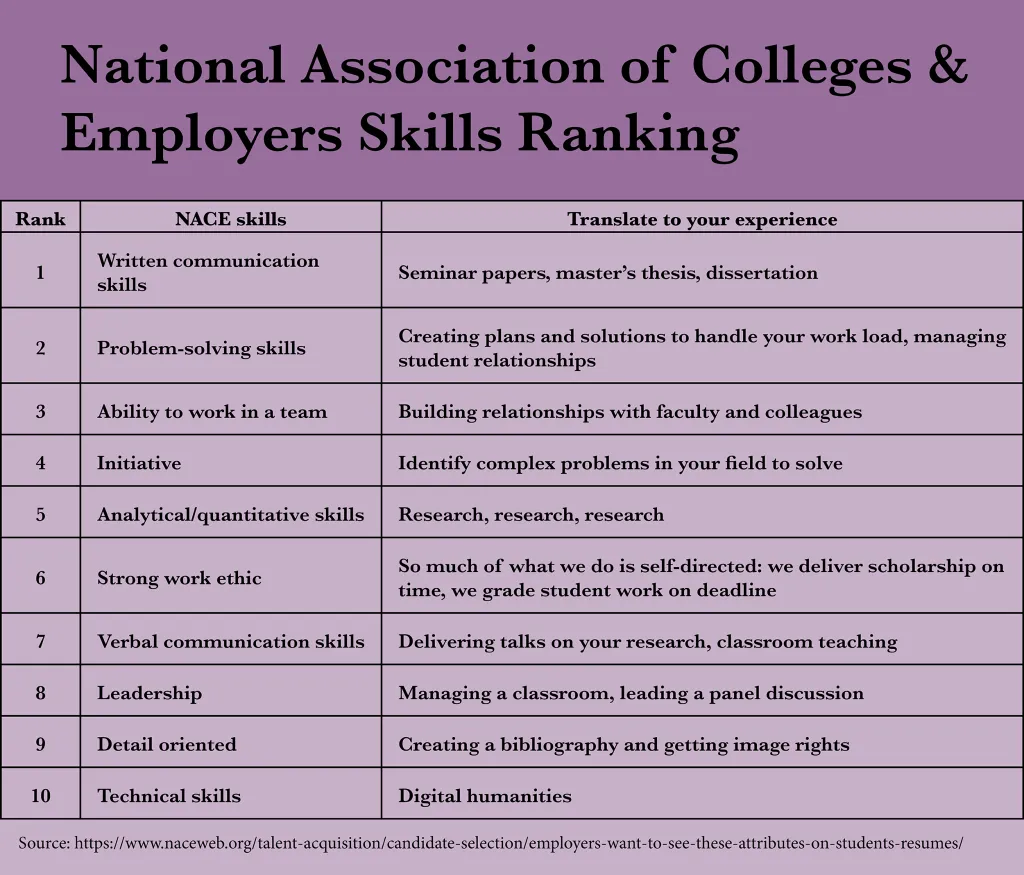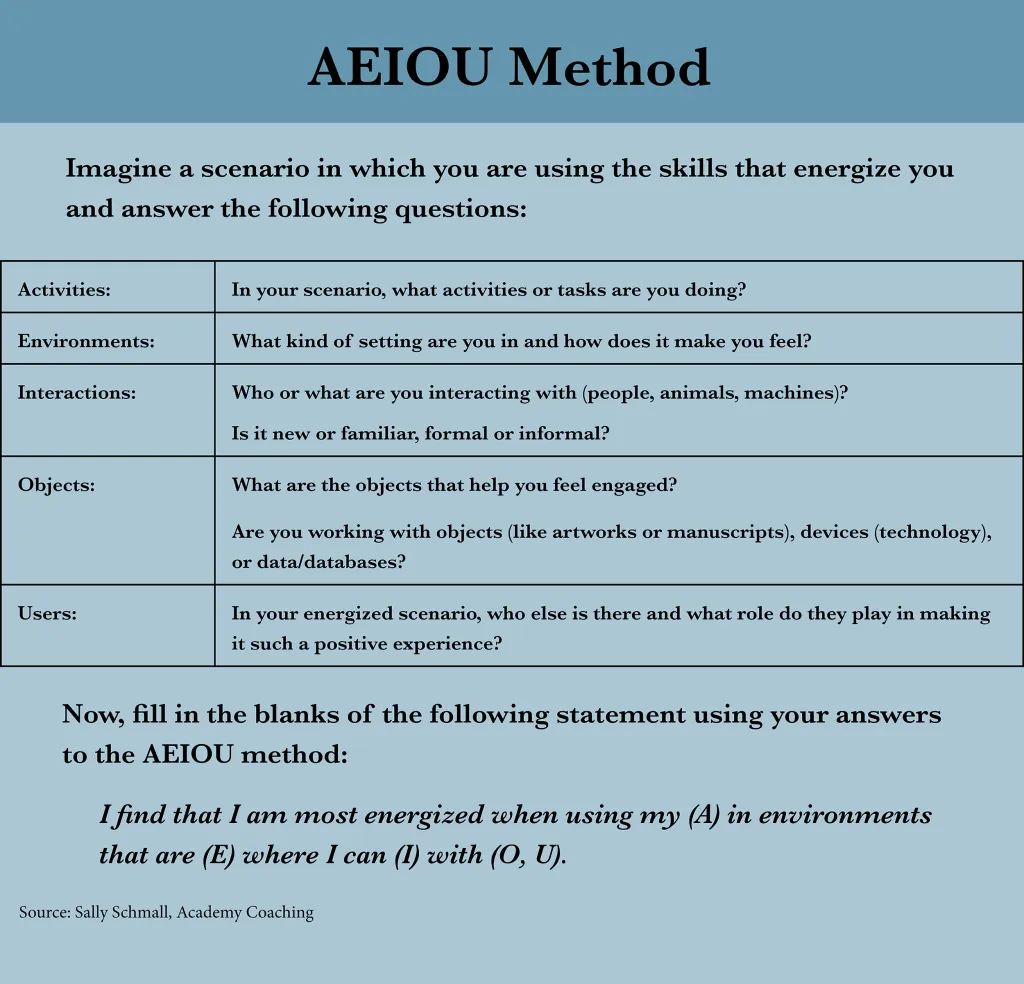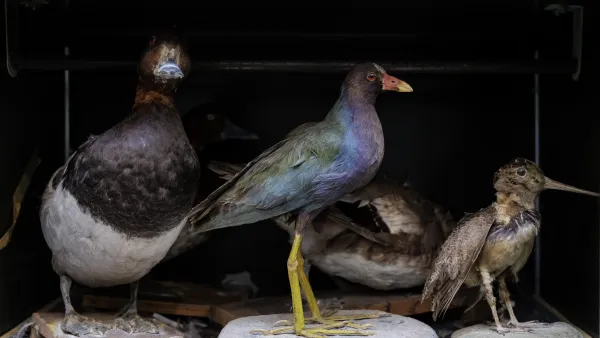PhD candidate Tola Porter (Art History & Archaeology) returns from the Mellon-funded Humanities Without Walls Pre-Doctoral Workshop to share what she learned.
Most humanities doctoral students are painfully aware that although the number of academic humanities jobs is declining, the number of doctorates continues to rise. The annual Survey of Earned Doctorates confirms this pattern: The rate at which humanities departments graduate new PhDs is faster than the academic job market can absorb them.

Yet, many humanities departments still privilege academic careers over other careers. The privileging can be subtle, but I’d bet you know the one or two career paths that you are expected to apply for at the end of your graduate studies. Implicit career bias can lead to a culture of shaming alternative career paths at the precise moment when we need more career options. In order to chip away at this problem, we must first acknowledge it.
To be fair, many universities and academic associations are on the right track. The Redefining Doctoral Education program at the WashU Center for Humanities (and sponsored by the Andrew W. Mellon Foundation) is currently training faculty to incorporate alternative career strategies into curricula. The Humanities Without Walls (HWW) Pre-Doctoral Workshop, which I attended this summer in Chicago, is a similar effort aimed at the graduate-student level. HWW’s goal is to support and encourage expanded thinking about what should be considered successful career outcomes.
By sharing the empowering mindset and the tools I learned at the HWW Workshop, I hope to spread good news: Your expertise and skills translate to a wide variety of roles, and with a little self-knowledge, you will find a career path that fulfills you as an individual, rather than simply following the traditions and expectations of your research specialty.
Develop Self-Knowledge
A major focus of the HWW Workshop was on building the self-knowledge needed to select a career that suit us. Instead of focusing on obtaining the type of job that you think you are expected to pursue, ask yourself, “What is a successful career outcome for me?”
Answering that question takes self-exploration. How clear are you about your work-related values? Do you know that your teaching skills translate to nonacademic settings? What activities and environments energize you? If you don’t have the answers for those questions, you’re not alone. Here are some tools to develop your self-knowledge.
Skills
Recognize that your graduate education provided you with real and definite skills that can be applied to either an academic or non-academic job. Learning to speak the skills language for a nonacademic job search will empower you. The National Association of Colleges and Employers (NACE) ranks the skills that employers want to see most on a resume. How many of the top 10 skills do you have?

Values
It is important to determine your work-related values because they should guide your career selection. A job that fulfills your values leads to job satisfaction. Is environmental impact a top value? What about social justice? Is it essential that you be able to continue research in your subfield, or are you willing to use your research skills on other topics? Is work-life balance a key requirement? What about security, salary, location? Which of these are you not willing to give up? Create your own value inventory so you can select a position that aligns with your values. Two good sources are balancecareers.com and lifevaluesinventory.org.
What Energizes You?
When awareness of our values and skills is enriched by considering what energizes us, self-knowledge deepens. During the HWW Workshop, Sally Schmall of Academy Coaching led us through the “AEIOU” method to identify the skills and settings that energizes us in our day-to-day experiences in school and life. Try it. Imagine a scenario in which you are using the skills that energize you and answer the following questions:

The fully fleshed out sentence may surprise you and offer insight into the environments and activities that should focus your career search.
In Conclusion
With an accurate awareness of the humanities career landscape, an acknowledgement of the implicit career bias that still lurks in academia, and self-knowledge, humanities PhDs are well positioned for a variety of careers that are intellectually stimulating and fit them as individuals. The career search will be daunting, but approaching it with mastery of self-knowledge will turn a tough necessity into a practice of imaginative self-actualization — and isn’t that the reason we came to graduate school after all?
Headline photo: Photo by Kelly Sikkema on Unsplash




